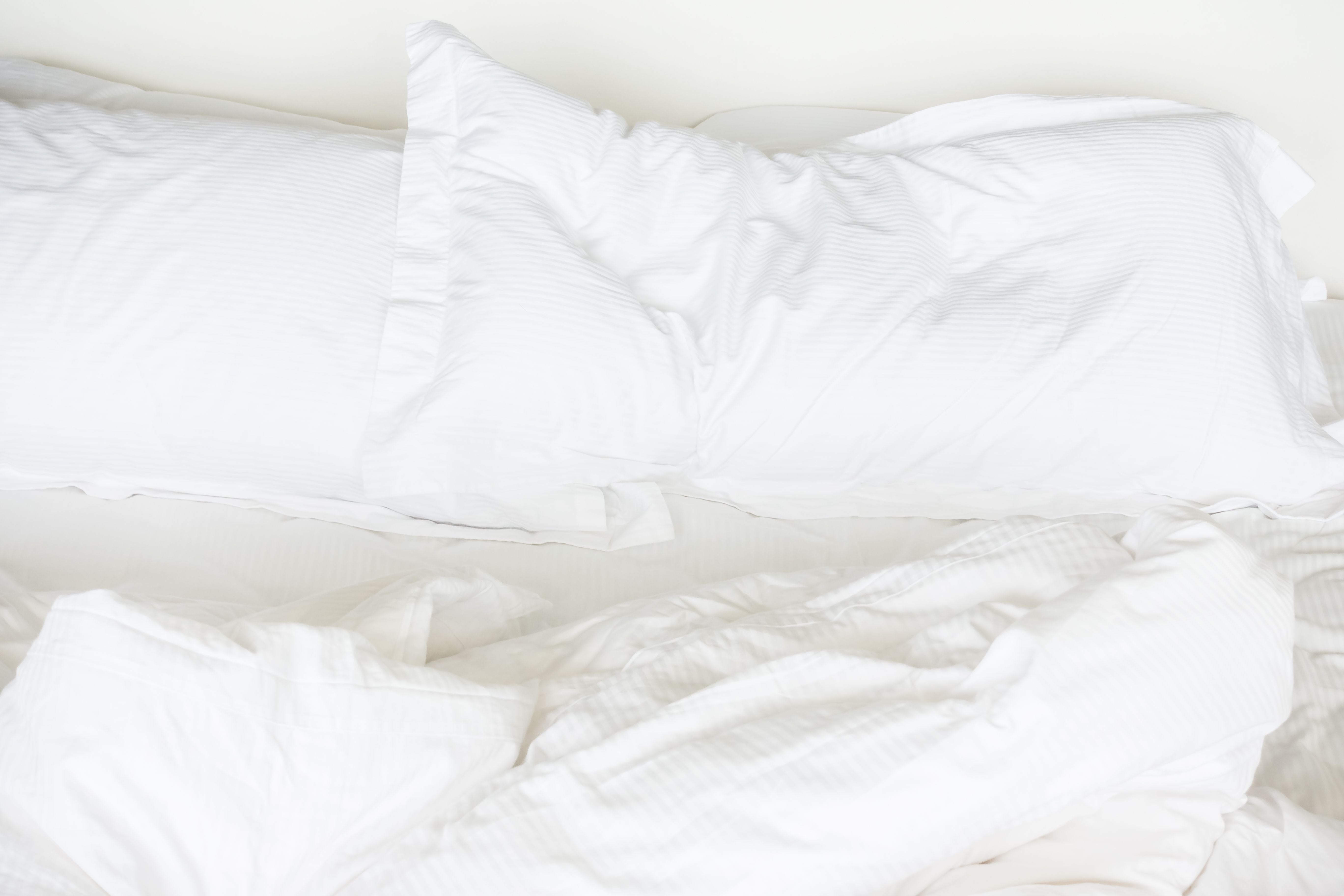Do you feel tired and fatigued during the winter? You are not alone. Although you may think you sleep better in the winter, the shorter days can affect the quality and quantity of your sleep, making it more difficult to get out of bed in the morning. We discuss all the ways you can get better sleep during the winter.
Stay warm
You may think that you need to make your bedroom warmer to sleep better during the winter, but it actually makes it more difficult for you to fall asleep. Our bodies find it difficult to regulate their temperature when we’re sleeping, and therefore the temperature of the room can have a significant effect on your sleep quality. No matter the season, it is recommended to keep your room at a comfortable 18°C
One of the reasons you may feel cold at night is because the body loses a significant amount of its heat from our hands and feet while we’re sleeping. If you find yourself getting chilly during the night, consider buying a warm pair of socks. It is also worth investing in a lightweight and insulating duvet or blanket, such as down or silk.
Increase your sunlight exposure
Exposing yourself to sunlight during the winter is important for sleeping well. Fewer daylight hours during the winter months can have a significant effect on your sleep-wake cycle. During the day, light exposure sends messages to the body telling it to stay alert. After daylight hours, however, the body stops suppressing melatonin causing you to feel more tired. Because the daylight hours are shorter, the melatonin is secreted earlier in the day and for a longer amount of hours. This causes us to feel more fatigued at an earlier time.
To help combat feelings of tiredness during the day, it is recommended that you try to spend more time outdoors and expose yourself to light, especially in the morning. And, if that’s not possible, try sitting by a window during the day and avoid bright lights during the evening.
Resist the urge to nap or sleep in
You may feel tempted to sleep in, nap and spend more time in your bed during the cold winter months. Although it may be cosy, it can lead to poor sleep quality at night, and even sleep deprivation.
If you do nap, it should be relatively short to avoid increased sleepiness during the day and difficulty sleeping at night. The ideal nap time ranges between ten and thirty minutes, although this varies from person to person. This will allow you to feel refreshed without affecting your quality of sleep at night.
Eat lighter dinners
Although it is tempting to eat bigger meals during the winter, it is not necessary and can affect the quality of your sleep. Having to digest a large amount of food before you go to bed makes it more difficult for you to fall asleep, potentially causing heartburn, stomach aches and other problems.
Stress prevention
Taking measures to reduce stress in your life can help to improve your sleep. During times of unwanted stress or anxiety, relaxation techniques can help you to avoid sleepless nights and poor sleep. There are many different strategies to help you relieve night-time stress and anxiety.
Some techniques take the form of soothing yourself before bed, perhaps with calming music or a warm tea. Taking a hot bath or shower can help you to relax and will lower your body temperature, helping you to fall asleep faster. Another strategy is to try to relax using yoga and meditation to improve mindfulness. Doing this on a nightly basis will calm your body and mind so you can get the sleep you need.
Stuffy nose
In the winter, nasal congestion is a common discomfort we all experience as we get ready for bed. This is because our nasal passageway is less moist than it normally is year-round. Abnormal or laboured breathing can make falling asleep more difficult and can lower your quality of sleep once you do fall asleep.
If congestion keeps you up, drinking plenty of water or herbal tea should help. However, if these techniques don’t work, it may be worthwhile investing in a humidifier to allow you to breathe without discomfort. A saline solution to clean the inside your nose is also a tried and true method to help combat nasal congestion.
Avoid oversleeping on the weekends
Many of us tend to believe that if we don’t sleep enough during the week, we can use the weekend to catch up on sleep. However, this thinking is counterproductive as you cannot make up for lost sleep. In reality, you are disrupting your natural circadian rhythms, which can make it more difficult to fall asleep once the week begins. Instead, staying consistent with a regular sleep schedule all seven days of the week is the best way to truly stay well-rested and refreshed.


